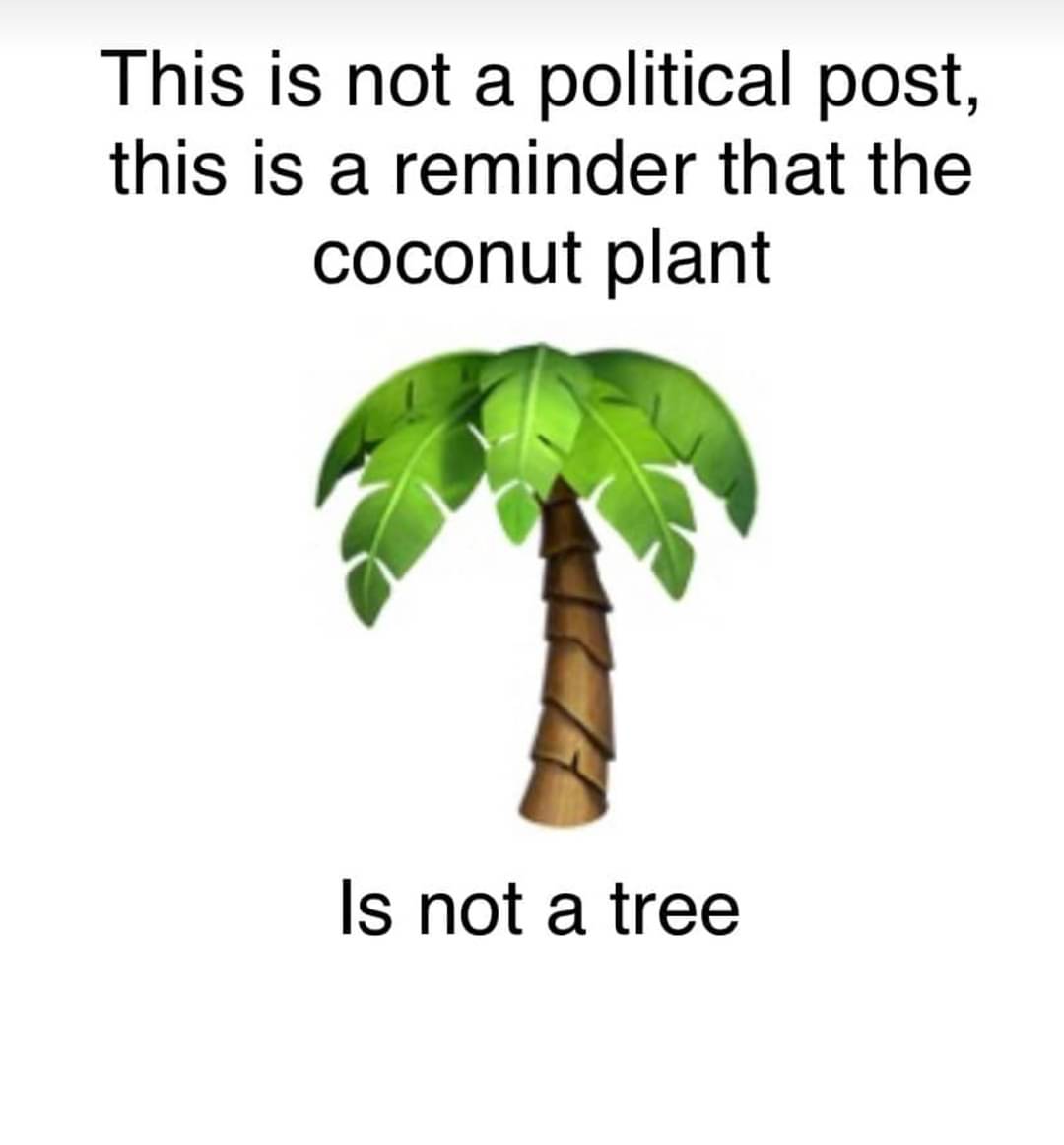this post was submitted on 22 Jul 2024
317 points (91.0% liked)
Science Memes
11217 readers
2544 users here now
Welcome to c/science_memes @ Mander.xyz!
A place for majestic STEMLORD peacocking, as well as memes about the realities of working in a lab.

Rules
- Don't throw mud. Behave like an intellectual and remember the human.
- Keep it rooted (on topic).
- No spam.
- Infographics welcome, get schooled.
This is a science community. We use the Dawkins definition of meme.
Research Committee
Other Mander Communities
Science and Research
Biology and Life Sciences
- !abiogenesis@mander.xyz
- !animal-behavior@mander.xyz
- !anthropology@mander.xyz
- !arachnology@mander.xyz
- !balconygardening@slrpnk.net
- !biodiversity@mander.xyz
- !biology@mander.xyz
- !biophysics@mander.xyz
- !botany@mander.xyz
- !ecology@mander.xyz
- !entomology@mander.xyz
- !fermentation@mander.xyz
- !herpetology@mander.xyz
- !houseplants@mander.xyz
- !medicine@mander.xyz
- !microscopy@mander.xyz
- !mycology@mander.xyz
- !nudibranchs@mander.xyz
- !nutrition@mander.xyz
- !palaeoecology@mander.xyz
- !palaeontology@mander.xyz
- !photosynthesis@mander.xyz
- !plantid@mander.xyz
- !plants@mander.xyz
- !reptiles and amphibians@mander.xyz
Physical Sciences
- !astronomy@mander.xyz
- !chemistry@mander.xyz
- !earthscience@mander.xyz
- !geography@mander.xyz
- !geospatial@mander.xyz
- !nuclear@mander.xyz
- !physics@mander.xyz
- !quantum-computing@mander.xyz
- !spectroscopy@mander.xyz
Humanities and Social Sciences
Practical and Applied Sciences
- !exercise-and sports-science@mander.xyz
- !gardening@mander.xyz
- !self sufficiency@mander.xyz
- !soilscience@slrpnk.net
- !terrariums@mander.xyz
- !timelapse@mander.xyz
Memes
Miscellaneous
founded 2 years ago
MODERATORS
you are viewing a single comment's thread
view the rest of the comments
view the rest of the comments

Indeed, it simply is not a phylogenetic categorization but a physio-ecological one. Tree, like shrub, liana, herbaceous, woody/non-woody are all terms solely used to place plants into functional groups based on how they grow. None of these has to do with their taxonomy.
So the question is, what is a tree and is having secondary growth necessary to be one? Because monocots, like palms are, don't have secondary growth, they use some workarounds. But why should that matter in the definition of a tree? I don't know. So yeah, a coconut palm should be considered a tree. But it hasn't got to do with phylogenetics (like explained in the article you linked).
Also, millennia ago there have been vast forests of lycopods!! Just imagine huge trees that are actually spikemosses. So why shouldn't a palm not be a tree?
my definition of a tree is basically "a plant consisting of a single pillar-like robust trunk".
most plants can be trees, especially ones that generally grow as bushes, if they are prodded into doing so by pruning and whatever other pressures, and there are some plants that seem to flip a coin to decide whether they grow into bushes or trees.